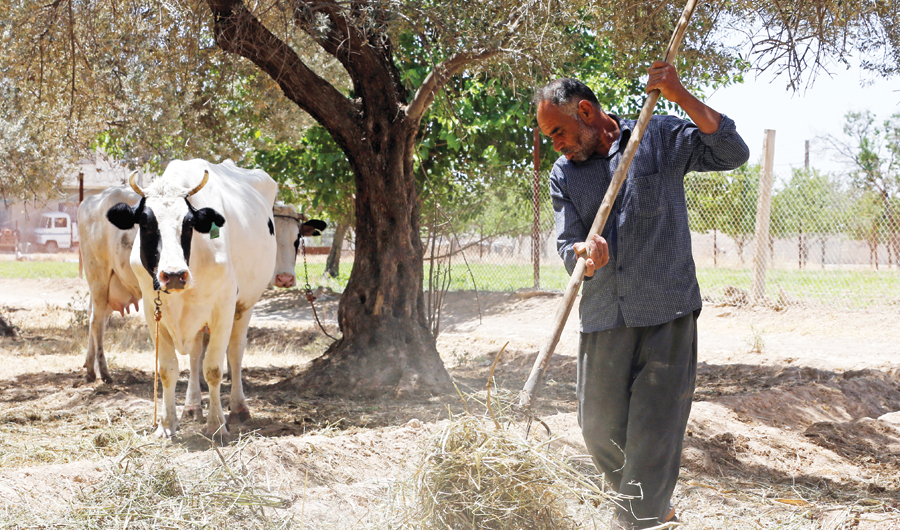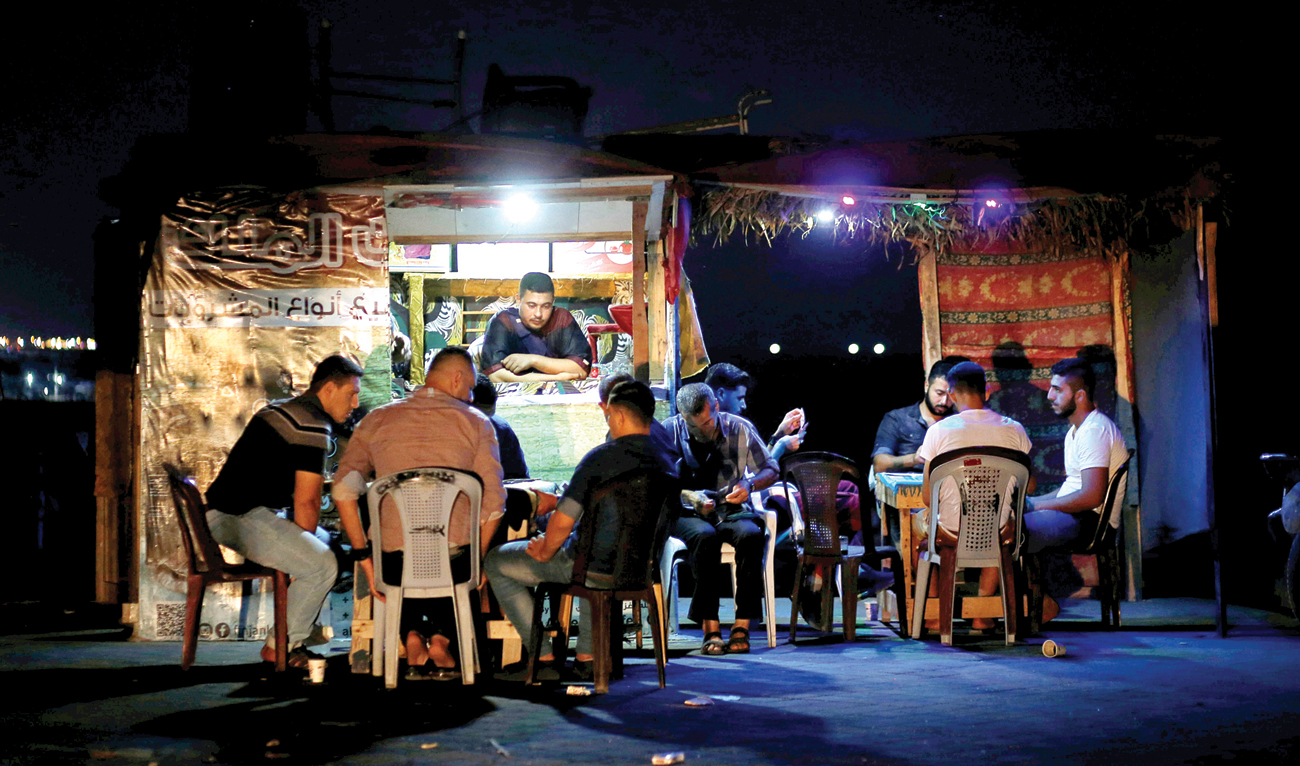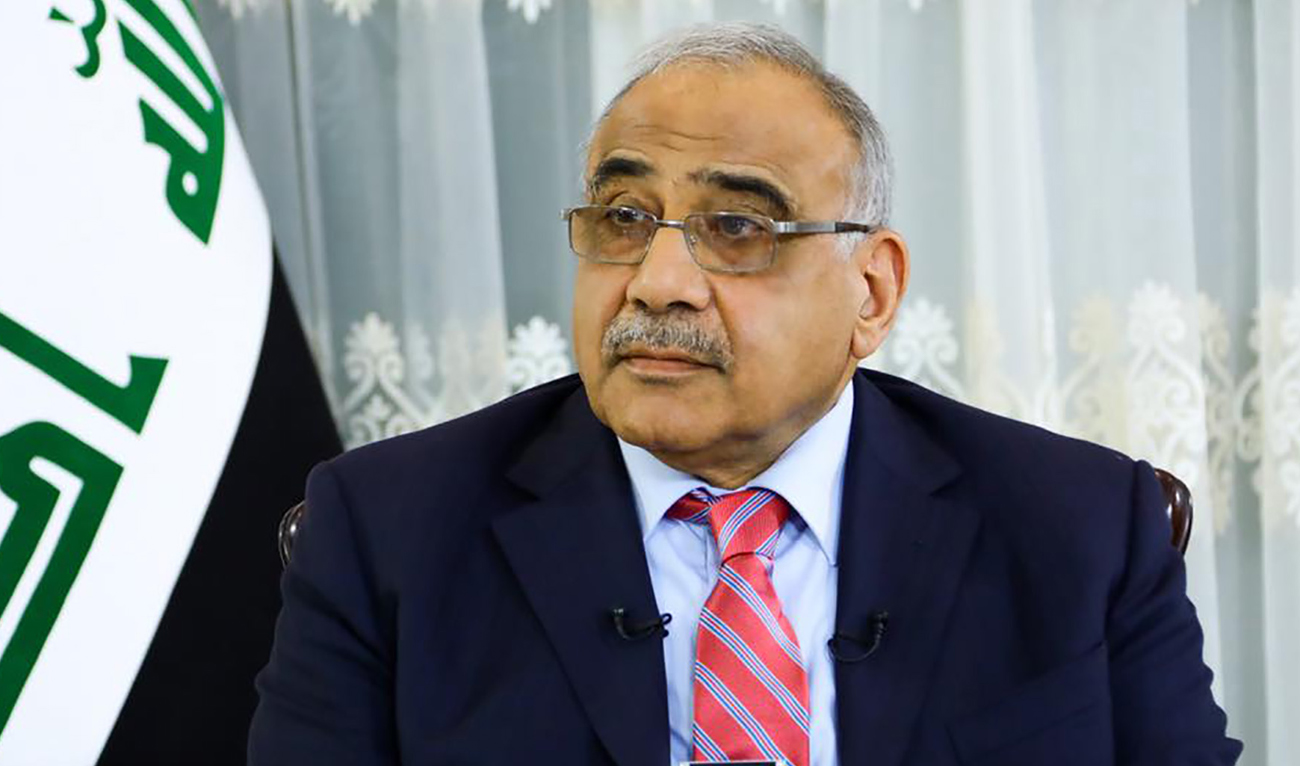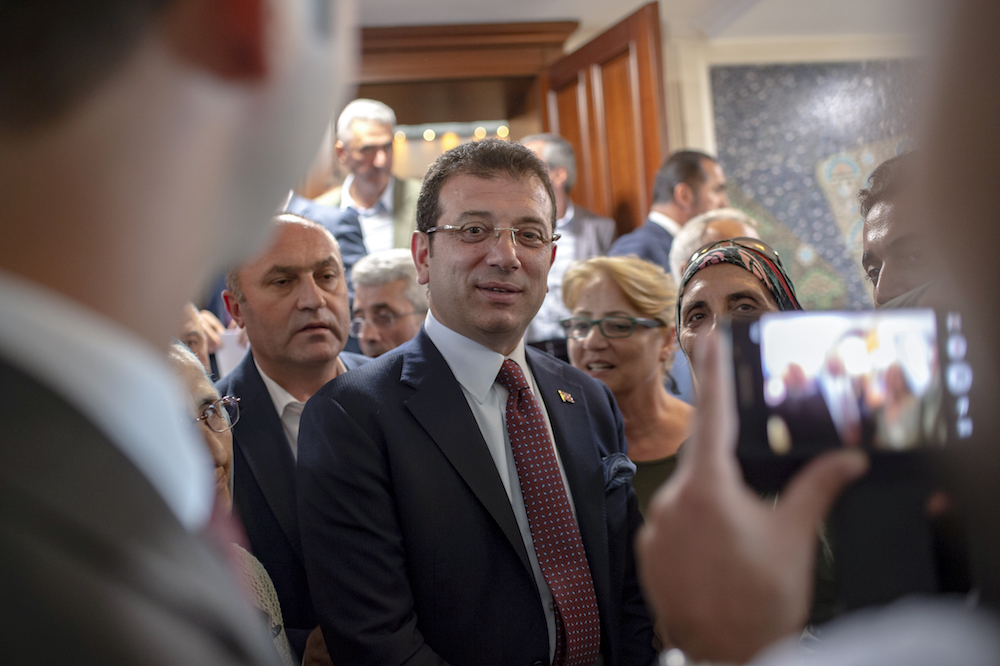Kuwait’s generosity boosts Syria’s food security
DUBAI: Kuwait and the Food and Agricultural Organization (FAO) of the United Nations have teamed up to help farmers and herders in Syria recover from the setbacks dealt by war. This month, Kuwait contributed $3 million to benefit about 20,000 highly vulnerable people and their extended families by boosting their food security and nutrition situation. Kuwait is working with FAO to fight hunger and malnutrition and assist disaster-stricken communities in the Near East and North Africa (NENA) region and beyond, in countries such as Yemen, Somalia, South Sudan and Nigeria.
“There is an urgent need to strengthen cooperation between the Gulf, the United Nations and the international community to increase the resilience of the most vulnerable populations and jointly address the challenge of food insecurity in the region,” said Abdessalam Ould Ahmed, FAO assistant director-general and NENA regional representative.
“Beyond the structural causes of food insecurity, conflict has remained the single most important driving factor of food insecurity in the Arab region in recent years. Conflict undermines food security in multiple ways: destroying crops, livestock and agricultural infrastructure, disrupting markets and causing displacement and the spread of diseases.”
FAO has collaborated with Arab Gulf countries for more than 70 years. Currently, Saudi Arabia is among its top resource partners, and the number one in the Near East.
However, in recent years economic growth in several Arab countries has been adversely affected by conflict. According to FAO, “the protracted crisis in Syria, coupled with the most severe drought in decades, has severely weakened Syria’s agricultural production. This has led to more than 6 million people facing hunger and increasingly struggling to feed their families, and to high food prices.”
The still precarious political situation in Syria continues to fuel the largest refugee crisis in the world. Despite decreased levels of conflict in many areas, “within the country, 6.2 million people remain displaced, around 1.4 million have returned, and these returnees are in urgent need of resources and support,” Ahmed said.
Kuwait’s contribution will go towards helping Syrian households headed by women and their extended families with vegetable seeds, irrigation kits and feed for their animals, as well as support to rehabilitate their fodder crop nurseries and training on best agricultural practices. FAO will carry out these activities in Syria’s Daraa, As-Sweida, Deir-Ez-Zor and Hama governorates. “Gulf donors have been major providers of funding and resources to UN and FAO activities aimed at supporting the affected populations in many areas: access to food, health, sanitations, livelihood support and others,” Ahmed told Arab News.
“Despite the conflict and violence, farmers are still on their land. They are in dire need of inputs, seeds and animal feeds, and they need access to markets.”
FAO’s primary focus is on building the resilience of farmers and affected communities. In 2018, it managed to reach three million people in Yemen and almost 273,600 Syrians, including cross-border operations. “The Kuwait contribution to the FAO programs in Syria and Yemen has been critical in this regard, and GCC countries can do a lot to support the expansion of the livelihoods programs,” Ahmed said.
INNUMBERS
$3m – Kuwait’s contribution to FAO
6.2m – people remain displaced in Syria
1.4m – Syrians have returned but in urgent need of resources and support
20m+ – Yemenis are food-insecure in 2019
“The NENA region is home to some of the biggest humanitarian crises in the world, which have been further complicated by conflict, water scarcity and climate change. Addressing this requires a collective effort.”
It is not Syria, however, but Yemen, in the Arabian Peninsula, that is at present the site of the world’s worst humanitarian crisis. More than 20 million Yemenis are food-insecure this year, including nearly 10 million who are on the brink of famine and starvation. Conditions in two thirds of all districts in Yemen are considered “pre-famine.”
Saudi Arabia and the UAE are supporting a project being implemented by FAO in Yemen that has benefited 4,200 local fishermen in Abyan, according to the UAE’s WAM news agency. It is being supported by the UN Office for the Coordination of Humanitarian Affairs (OCHA) and the Field Medical Foundation.
The project is part of a series of humanitarian and development projects supported by the two countries “through various international organizations which aim to improve the livelihoods of residents of areas damaged by the war started by the Iranian-backed Houthi militias.”
Ahmed spoke of a shared history and culture between the Gulf and many of the countries facing developmental and humanitarian crises. “While Gulf countries have made immense contributions to life saving, there is much to be done to ensure that livelihoods are saved and protected,” he said.
“Agriculture is a critical source of income and provides food and nutrition needs for affected households and their livestock.”
FAO uses the “resilience approach” in tackling hunger and food insecurity in the region through income generation and access to food; building agriculture assets; strengthening social safety nets; ensuring availability of basic services such as health, water and sanitation; and strengthening households’ ability to adapt.
“Any contribution can increase the resilience of households, communities and institutions to effectively prevent — and cope with — crises by providing viable livelihood opportunities in agriculture,” Ahmed said. “Contributing to the enhancing resilience of crisis-affected communities will help achieve the overall goal of improving food security and alleviating rural poverty in the region.”
Experts have described such contributions as crucial because along with money, time is also of the essence. Once farmers and herders have been displaced from their land, it becomes extremely difficult to go back and restart due to a lack of supplies and labor.
“More importantly, the dislocation causes severe physiological problems,” said Jeffrey Culpepper, chairman of UAE-based AgriSecura, which provides sustainable solutions for food-security purposes.
“Farmers and herders are deeply attached and tied to the land, usually generations of the same family. It’s an anchor for their existence, so getting them back and settled can’t be understated.” Culpepper said contributions such as those made by Kuwait can make the difference between return or life as a refugee.
“A factory worker can work anywhere but farmers and herders need land,” he said.
“The situation in the region is critical — every time you remove a farmer or herder from the land, that’s one less person producing food and one more needing to be fed from outside sources. “Right now, you have malnutrition rapidly gaining ground in the region, especially among children.”
Once a conflict ends, it can take years to get farmers and herders back on the land on which they traditionally depended for sustenance. “Kuwait’s assistance should jumpstart the recovery,” Culpepper said. “This is 2019 — the time of artificial intelligence and vast wealth in the hands of the 1 percent. Children should not be going hungry.”
Conflict resolution is of course the best solution to the problem, given that disruptions in food production happen quickly in conflict zones. Restoring food production can prove tough and, often remains out of reach, which reinforces the cycle of dependence on foreign food aid and increases malnutrition levels in conflict zones.
“Due to the unrest in Syria, agricultural production and farmers’ income were disrupted, which had detrimental social impact on their families and their communities,” said Dr. Khalil Ammar, principal scientist in hydrogeology and water resources management at the International Center for Biosaline Agriculture in Dubai.
“Unrest affects the livelihoods of millions of people in these countries, particularly the farmers who rely on agricultural production and livestock. In addition, natural disasters such as drought cause sharp declines in cereal and forage production, higher grain prices, environmental degradation, and migration of young people when coupled with conflict.”
Dr. Ammar said more efforts were needed to build resilience and reduce vulnerability through supporting planning for longer-term action and more investment for development.
“Several countries in the region need urgent support to mitigate the food and nutrition security crisis and restore the livelihoods of communities dependent on livestock and crops,” he said.


Syria’s Idlib clashes kill at least 60 fightersSyrian Kurdish YPG has withdrawn from some border positions — Kurdish authority



